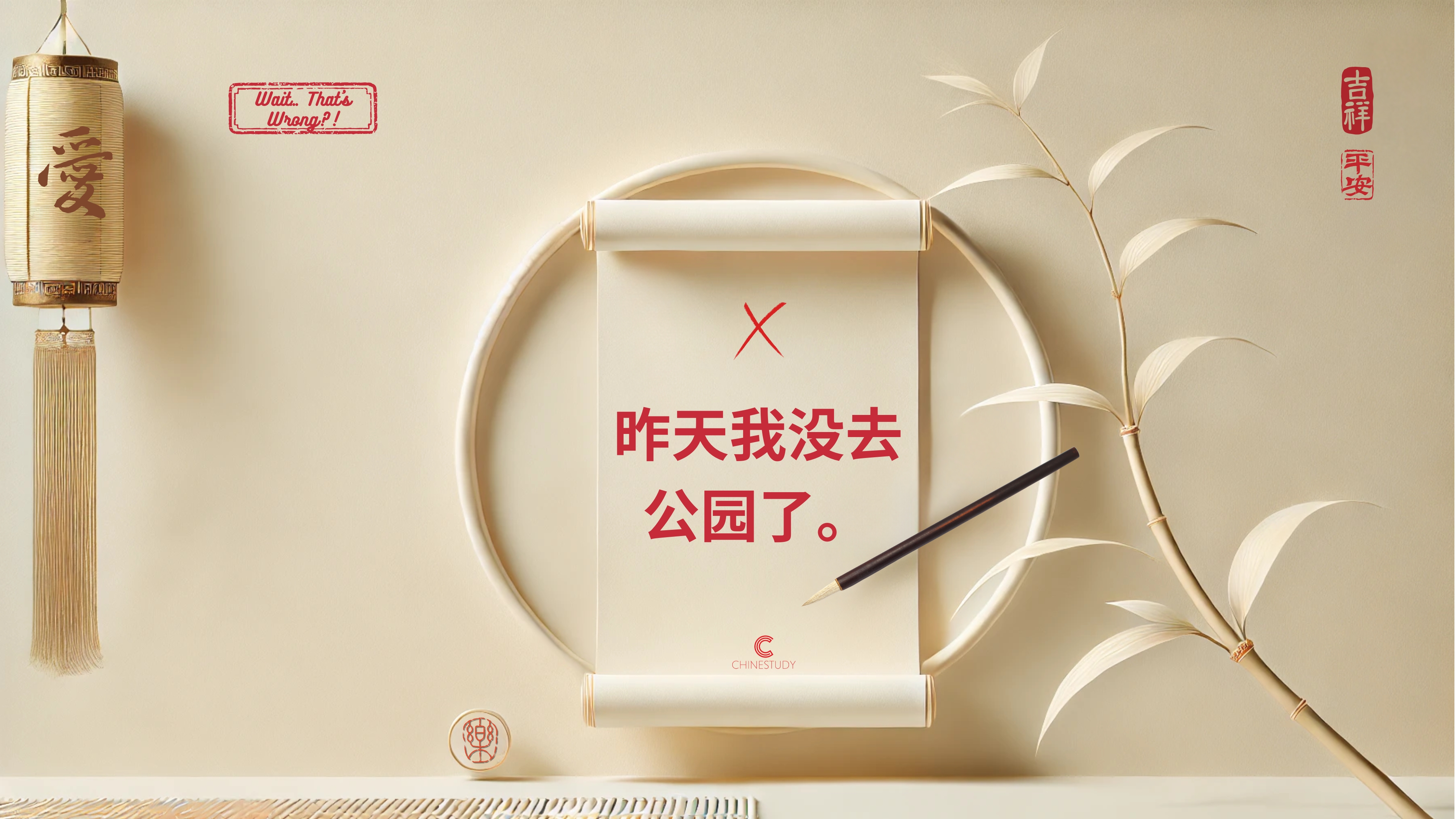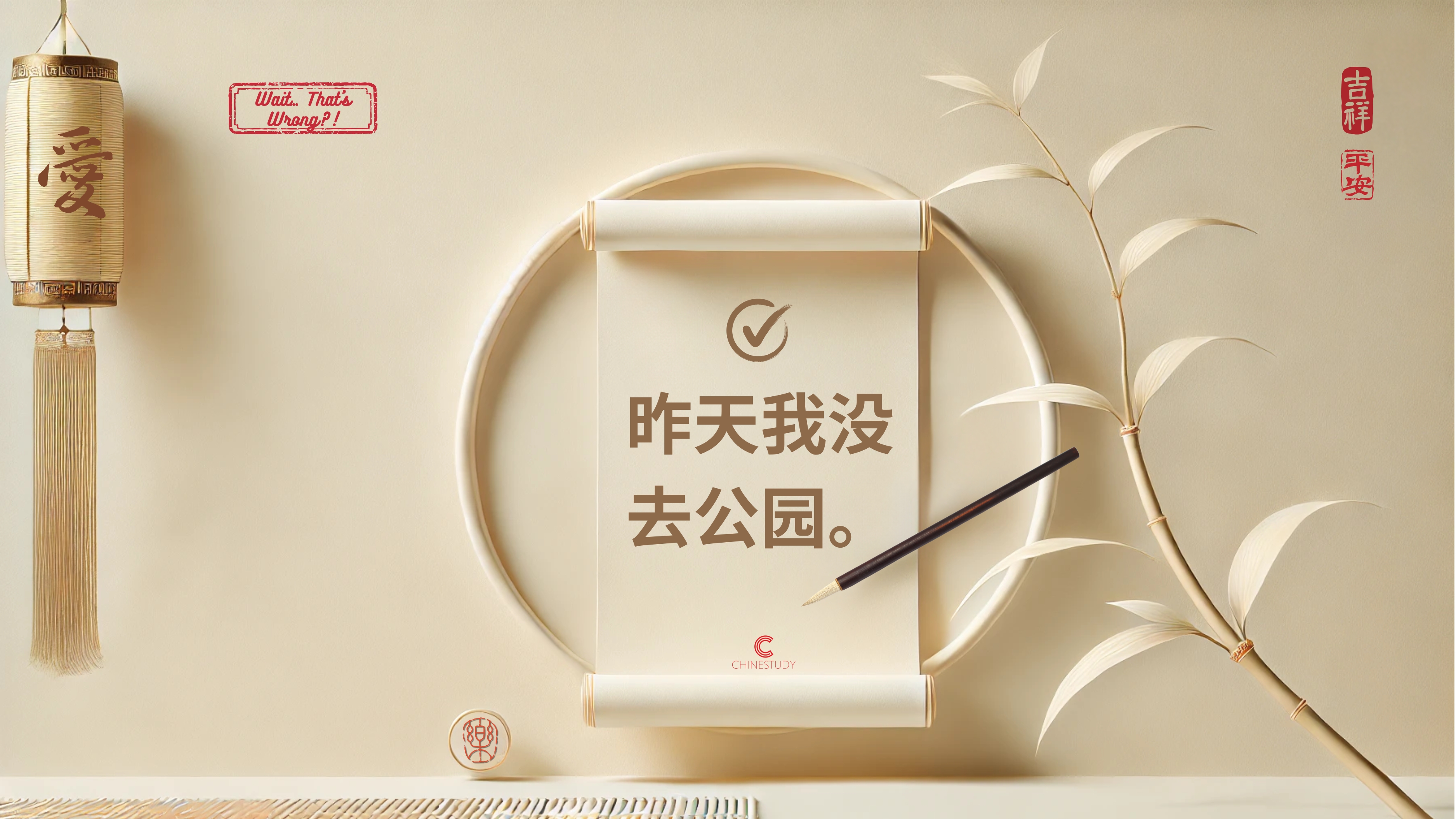😅 昨天我没去公园了。 Wait… That’s Wrong?!

Common Mistake:
❌ 昨天我没去公园了。
Pinyin: Zuótiān wǒ méi qù gōngyuán le。
🧐 What’s wrong?
📌 If you use 没 (méi, didn’t) to talk about something that didn’t happen, don’t use 了 (le) in the same sentence.
📚 Why is it wrong?
- The word “了” is used to show a completed action or that something new has happened.
- But in this sentence, “没” already shows that something did not happen, so you don’t need “了”.
- 📌 So, when you use “没” to negate a past action, you should not add “了”.
🛠 Let’s Fix It
Wrong sentence:
❌ 昨天我没去公园了。Zǒutiān wǒ méi qù gōngyuán le.
Correct sentence:
✅ 昨天我没去公园。Zǒutiān wǒ méi qù gōngyuán.
✅ I didn’t go to the park yesterday.

💬 More Examples
✅ 他没来学校。Tā méi lái xuéxiào.
👉🏼 He didn’t come to school.
✅ 我没吃早饭。Wǒ méi chī zǎofàn.
👉🏼 I didn’t eat breakfast.
✅ 昨天他们没看电影。Zuótiān tāmen méi kàn diànyǐng.
👉🏼 They didn’t watch a movie yesterday.
💡 Tip
📌 Use “了” to show something did happen.
📌 Use“没” without “了” to say something didn’t happen.
🧠 Interactive Practice
Can you fix the wrong sentences below?
1. ❌ 我昨天没吃饭了。
✅ Correct answer: 我昨天没吃饭。 Wǒ zuótiān méi chī fàn.
I didn’t eat yesterday.
2. ❌ 昨天他没来上课了。
✅ Correct answer: 昨天他没来上课。 Zuótiān tā méi lái shàngkè.
He didn’t come to class yesterday.
3. ❌ 我没看到他了。
✅ Correct answer: 我没看到他。 Wǒ méi kàn dào tā.
I didn’t see him.
🇨🇳 Cultural Insight: Why This Mistake Happens
Many Chinese learners think they need to add “了” to show something happened in the past.
But when you’re talking about something that didn’t happen, Chinese uses “没” instead.
If you add “了” to a sentence with “没”, the meaning becomes confusing—like you’re saying something didn’t happen… but somehow did. 😅
✍️ Final Tip
📌 If an action didn’t happen, just use 没 + Verb.
No “了” is needed!
📝 So remember:
- 昨天我没去公园。 = ✅ Correct
- 昨天我没去公园了。 = ❌ Wrong
Thank you for subscribing!
Have a great day!